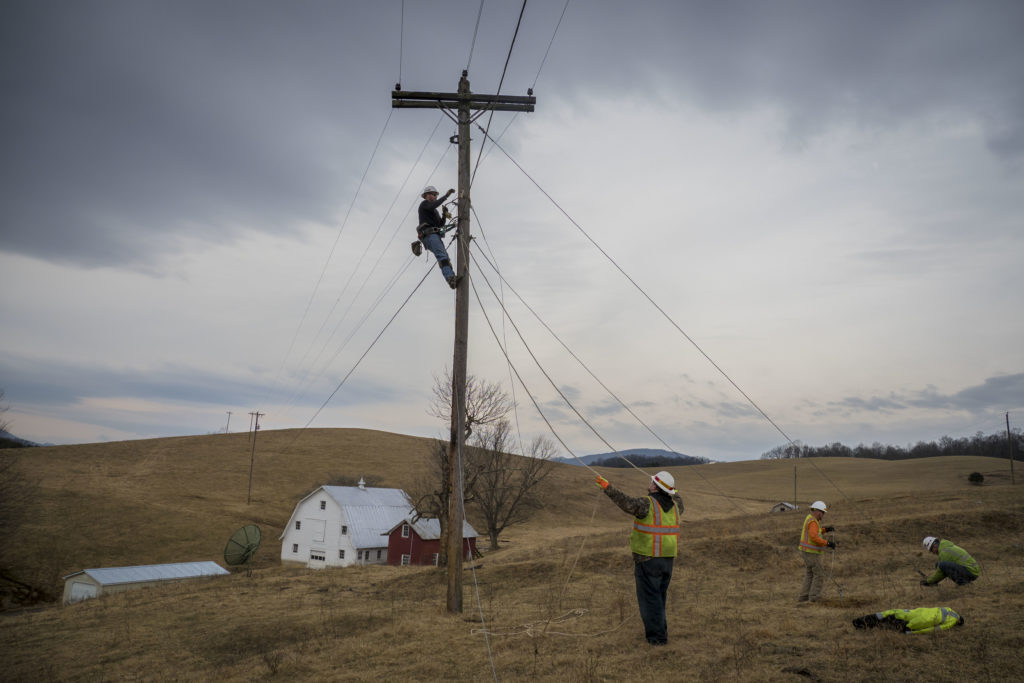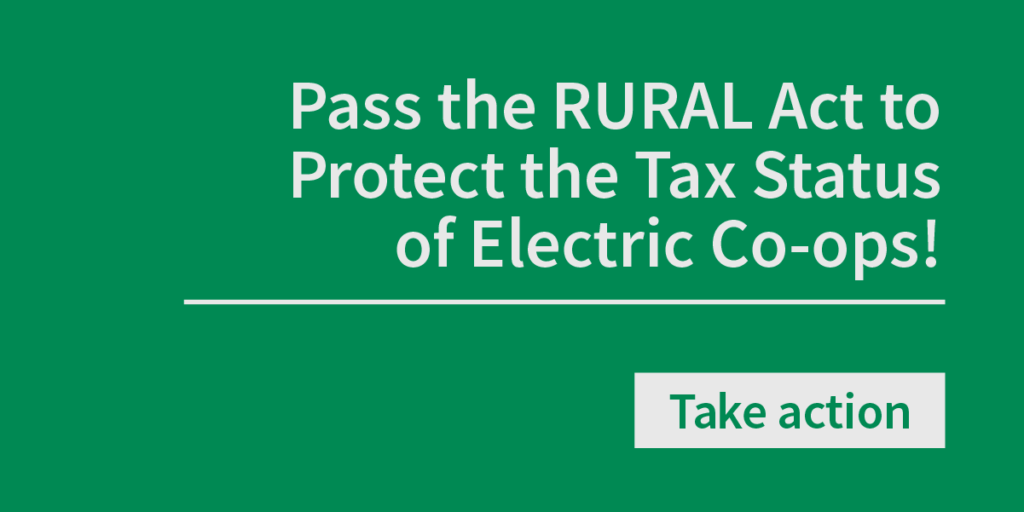
High-speed internet service “is vital to the survival and growth” of rural America, but a recent tax law change makes it harder for electric cooperatives to bring broadband to their communities, a co-op CEO told a key congressional committee Friday.
“We desperately need help fixing our federal tax code before the end of 2019,” said Tim Johnson, CEO of Otsego Electric Cooperative in Hartwick, New York. Johnson testified before the House Small Business Committee at a field hearing on rural broadband in Hudson, New York.
Unless Congress acts this year, Otsego and other not-for-profit co-ops throughout the nation could lose their tax-exempt status when they take federal, state or local grants to bring broadband service to rural residents. It also affects co-ops that accept grants to restore power after a natural disaster, invest in local economic development, or create energy efficiency or renewable energy programs.
Congress created the dilemma in 2017, when it passed the Tax Cuts and Jobs Act. The sweeping new law redefined government grants to electric and telephone co-ops as “non-member” income. Under federal tax law, no more than 15% of a co-op’s income may come from sources other than its consumer-members. Co-ops that exceed that amount can lose their tax-exempt status and be forced to pay federal and state income taxes. Before the change, government grants were considered capital and were not counted as part of a co-op’s income mix.
“For OEC, the train had already left the station when the tax bill arrived,” Johnson told the committee in written testimony. “Prior to the enactment of the new law and the discovery of its unintended consequences on our tax-exempt status, our cooperative was awarded $10 million from New York’s state broadband program plus nearly $4.3 million in federal funds over the next decade to extend broadband to well over 2,000 rural homes and businesses.”
After learning what Congress had done, Otsego EC’s board decided to “forge ahead” with its plans to bring broadband to all its members, Johnson said.
“We view access to reliable broadband as an essential basis for quality of life and economic development in our entire cooperative community,” he said.
Rep. Antonio Delgado, D-N.Y., who led the field hearing, said “small businesses, families, schools and health care providers in rural communities across upstate suffer daily from a lack of access to broadband due to lack of investment in broadband infrastructure.”
“We must take swift action to close the digital divide between our urban and rural communities,” Delgado said. “I hope that today’s discussion will shed light on ways to improve broadband in rural areas.”
Johnson said Otsego EC will lose its tax-exempt status if Congress does not pass a tax-fix bill by the end of this year.
“What’s more, as much as 30% of the grant money received could be lost to taxes,” he said. “The combined penalties of paying income tax on grant funds and the loss of tax-exempt status will significantly reduce our ability to build broadband to as many locations as we originally projected, depriving many households of the intended and direct benefits of public grant funding for the broadband project. This is clearly not good public policy and the inadvertent mistake that has caused this situation must be fixed.”

Johnson urged lawmakers to pass the RURAL Act, a bipartisan bill that would allow co-ops to once again accept government grants without risking their tax status.
“OEC, along with the entire rural electric cooperative family and various rural-focused organizations such as Farm Bureau and the National Cooperative Business Association, are urging Congress to pass this legislation,” he said.
Johnson told the committee about other impediments to providing broadband, including the lack of detailed, accurate federal data about which communities do and don’t have service.
“More granular and accurate maps showing broadband availability are a key part of reaching all rural Americans with high-speed broadband service,” he said. “This will enable us to clarify existing gaps in coverage and harmonize the diverse solutions that will be required to help rural Americans keep pace with their urban counterparts.”
Since co-ops are nonprofit businesses that operate at cost, they will continue to need public investment—including government grants—to bring broadband to rural areas, Johnson said.
“Rural electric cooperatives are uniquely suited to partner with the government for these projects because of the existing infrastructure we have in place throughout our service areas,” he said. “As member-owned, locally operated and democratically controlled entities, we feel we can best determine the needs of our local service areas because our consumer-members have a direct say in the services we provide. We will continue serving these areas we call home long after other companies have reduced the quality of their service or ceased investment altogether.”
Read more coverage of the RURAL Act:
As Majority of House Signs On to RURAL Act, Lead Sponsors Press for Vote
RURAL Act: Why Popular, Bipartisan Legislation Can Face Hurdles in Congress
Co-op Voices, Part 1: How Losing Tax-Exempt Status Would Hurt Rural Residents
Co-op Voices, Part 2: CEOs Discuss Impacts of Tax Law Glitch for Members
Q&A: RURAL Act’s Lead House Sponsors Say Co-op Voices Are Key to Bill’s Success
Q&A: Senate’s Lead RURAL Act Sponsors Discuss Their Strategy for Passage
NRECA CEO Jim Matheson: ‘If We All Stand Up,’ Co-ops Can Save Tax-Exempt Status
Co-op Advocacy Needed to Move Vital Tax Fix in Congress
Bipartisan Bill Would Protect Co-ops From Losing Tax-Exempt Status
Listen to a recent podcast on the RURAL Act: